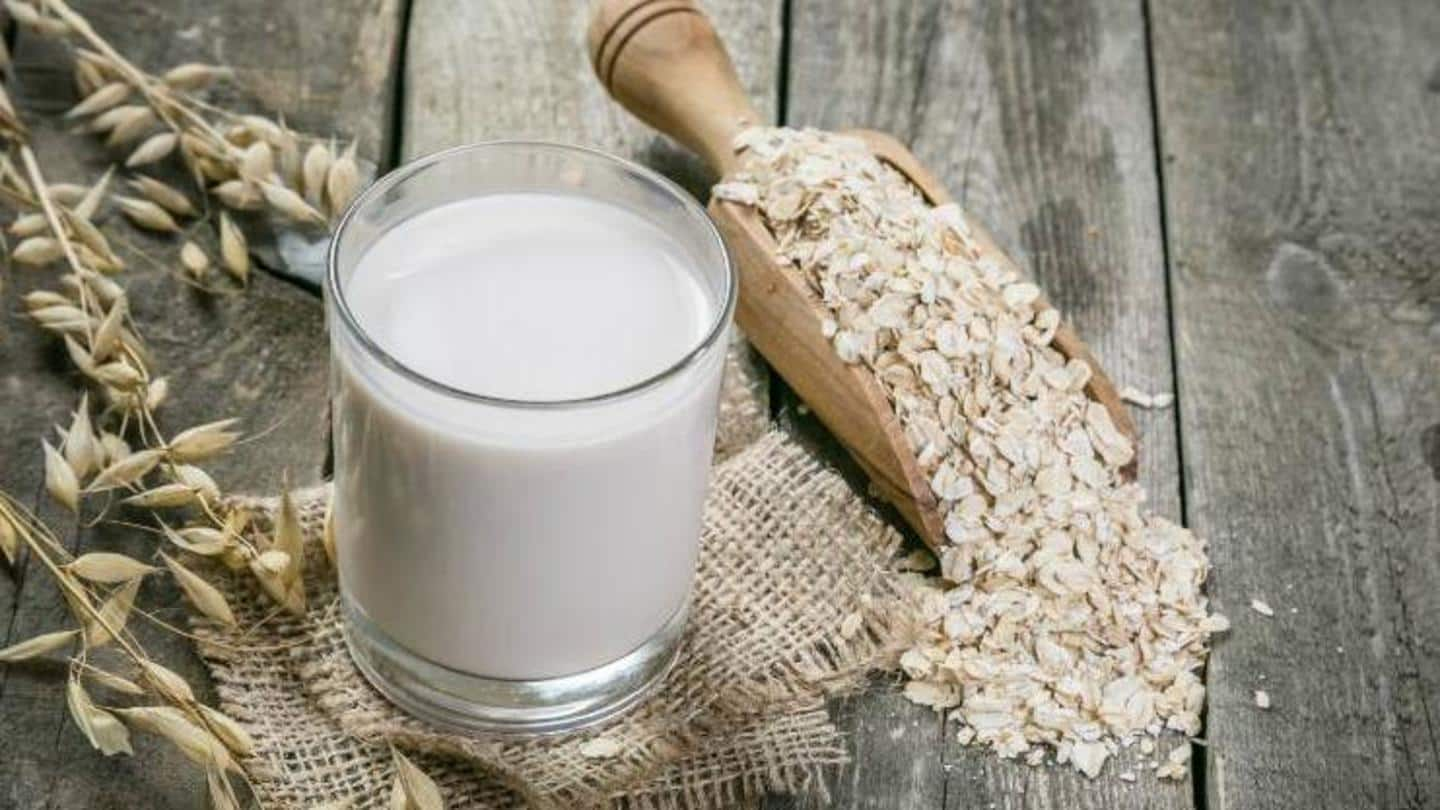
Oat Milk: Health benefits and how to make it
What's the story
With veganism on the rise, there are plenty of plant-based alternatives for regularly consumed dairy products.
One such substitute for regular milk is oat milk.
Oat milk is not just delicious but it is naturally free of lactose, making it a healthy choice for lactose intolerant individuals.
Read on to know more about its benefits, method of preparation, and more.
Method
What is oat milk?
Oat milk is made by soaking and blending rolled oats with water and then straining them to separate the milk.
The separated milk is then fortified with nutrients like calcium, potassium, iron, and vitamins.
While oat milk is found in most grocery stores, you can also make it at home and adjust it to suit your preferences and taste.
Preparation
How to prepare oat milk at home
Blend one cup of rolled oats with about three cups of water.
Next, pour the mixture over a cheesecloth and separate the milk.
Your oat milk is ready and you can store it in a refrigerator for up to 5-7 days.
For more flavor, you can add a pinch of salt, honey, vanilla essence, cinnamon extract, or other healthy sweeteners.
Bone health
Oat milk is great for bone health
Oat milk is often fortified with vitamin D and calcium that are beneficial for bones.
A lack of calcium in your diet can cause bone diseases and oat milk is a great way to get your daily calcium intake.
Further, store-bought oat milk also contains vitamin B12, which paves way for healthy bones and lowers the risk of osteoporosis.
Cholesterol
Helps in lowering cholesterol levels
Oat milk is high in soluble fiber that benefits the heart.
These fibers form a gel-like substance in the gut that can reduce cholesterol absorption.
A study found that drinking 3 cups of oat milk every day for 5 weeks reduced total blood cholesterol by 3%.
Another study showed consuming 3gm of oat beta-glutens every day lowers "bad" LDL blood cholesterol by 5-7%.